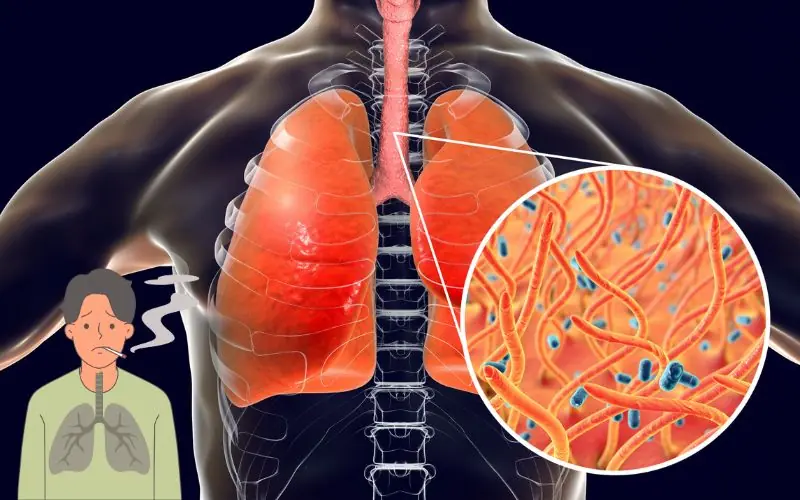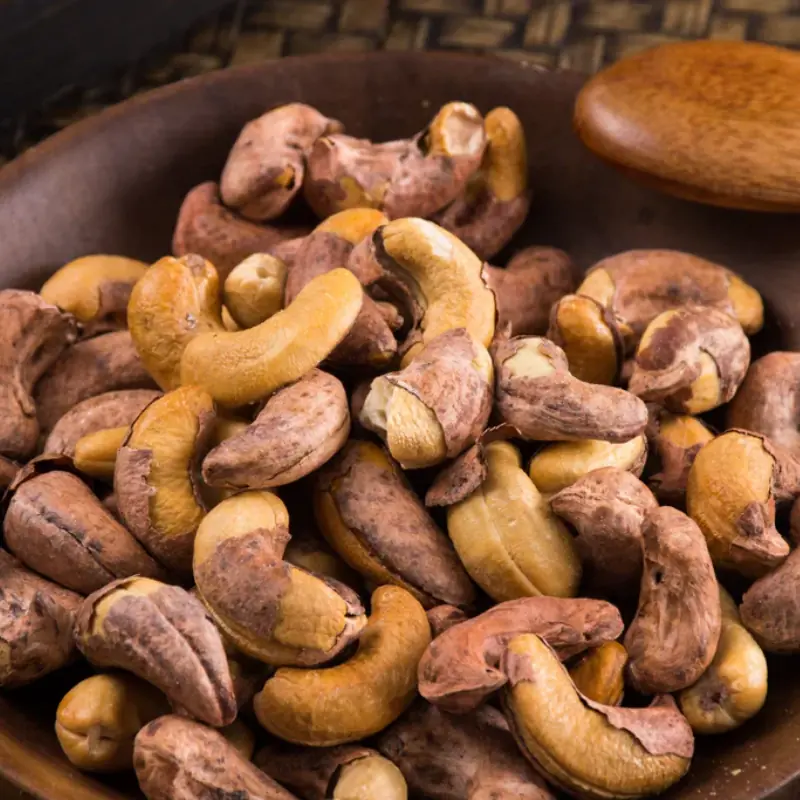
Why does a green ring form around hard-boiled egg yolks?
Why hard-boiled eggs get a green ring?

You can eat about 4-5 kumquats per day, which meets more than half of the required vitamin C intake.
Here are the main health benefits of kumquats:
1. Kumquats help control blood sugar
Kumquats have a low glycemic index (GI), which helps limit the spike in blood sugar after eating.
According to research by the American Diabetes Association (ADA), foods rich in fiber can slow down the absorption of sugar in the blood, thereby helping to maintain stable blood sugar levels.
In 100g of kumquats, there are about 6.5g of fiber, accounting for nearly 25% of the body's daily fiber needs.
Soluble fiber in kumquats, especially pectin, helps slow down the rate of carbohydrate digestion, preventing sudden spikes in blood sugar after meals.
A study published in the American Journal of Clinical Nutrition (AJCN) also showed that a high-fiber diet can help reduce fasting blood sugar levels and improve insulin sensitivity in people with type 2 diabetes.
2. Kumquats are rich in antioxidants, improving immunity
Kumquats are rich in vitamins A and C. These vitamins are famous for their antioxidant properties.
The antioxidants in kumquats can reduce oxidative stress caused by free radicals in the body. You can detoxify your body with a glass of kumquat juice.
According to a study, beta-cryptoxanthin and L-limonene in kumquats can improve immunity. In addition, they work by enhancing the activity of natural killer cells and reducing metabolic stress in the body.
3. Kumquats help improve cardiovascular health
People with diabetes are at high risk of cardiovascular disease due to lipid metabolism disorders and vascular damage.
Kumquats are rich in flavonoids and vitamin C, which help protect the heart by reducing inflammation and preventing plaque buildup in the arteries.
According to research from the American Heart Association (AHA), vitamin C in kumquats helps improve blood vessel health and lower blood pressure, thereby reducing the risk of stroke and heart disease.
Flavonoids such as hesperidin and naringenin in kumquats help reduce LDL cholesterol (bad cholesterol) and increase HDL (good cholesterol), helping to better control blood lipids.
A study published in the Journal of Nutrition and Metabolism (JNM) in 2018 showed that flavonoid supplementation from citrus fruits, including kumquats, helps improve vascular inflammation and helps regulate blood pressure in diabetic patients.
4. Kumquats have antibacterial effects
A study showed that oil extracted from kumquat peels may have antibacterial properties.
Therefore, it can prevent the growth of some harmful microorganisms such as bacteria and fungi that grow on food.
Due to its antibacterial effect, it can be beneficial in increasing the shelf life of food by preventing the growth of microorganisms.
5. Kumquats Improve Eye Health
Kumquats contain a reasonable amount of vitamin A in the form of beta carotene. It is one of the 11 carotenoids found in kumquats.
Many studies have found that carotenoids such as beta carotene, zeaxanthin, and lutein help improve eye health.
Our eyes contain rhodopsin. It is a protein compound that allows us to see in low light.
However, insufficient production of rhodopsin can cause night blindness. Vitamin A is an essential component for the production of rhodopsin.
Therefore, kumquats contain a large amount of vitamin A, which plays an important role in healthy vision.
6. Kumquats Help You Lose Weight
Another flavonoid found in kumquats, called Poncirin, may play a significant role in preventing obesity.
One study found that Poncirin may reduce the risk of weight gain by preventing the formation of new fat cells in the body.
In addition, they are a rich source of fiber. Since they move slowly through the digestive tract, they keep you feeling full for longer. They reduce cravings and the tendency to snack unhealthy.
Kumquats are complex carbohydrates because they contain a fair amount of fiber. Therefore, they take longer to pass through the intestines because digestive enzymes cannot break them down in the body. Fiber passes through the digestive tract without being digested by enzymes produced in the stomach.
So when you eat more fiber, you will feel full for longer. They help curb cravings, thus preventing weight gain.

Why hard-boiled eggs get a green ring?

7 silent signs your heart could be in trouble - don't ignore these

Lines like these on your nails may be a strong warning that...

These 5 Vegetables Can Contain Hidden Worms — Be Careful When Eating Them Raw


Noticing Red Dots Like These? Your Body Could Be Sending a Warning

Why Your Throat Feels Mucusy: The Real Reasons Behind That Sticky Sensation

Why Eating Tilapia May Be More Harmful Than You Think

The black vein in shrimp explained: What it is and whether you should remove it

Eating okra: What it does to your body, explained by doctors

Carob (Ceratonia siliqua): Benefits, Nutrition, and How to Use It at Home

People whose mouths feel dry when sleeping at night need to know these 8 reasons

Doctors Warn: Eating Cashews May Have Unexpected Health Effects

After Gallbladder Removal: 3 Conditions You Could Develop

Two everyday ingredients with surprisingly complementary properties.

Staying warm is only half the battle.

🏠 What It Means When You See a Centipede in Your Home

Warning signs you may have a brain hemorrhage, don't ignore them or you'll regret it too late

Funerals are intensely emotional occasions filled with mourning, introspection, and remembering

Unusual skin changes may be early warning signs of hidden diabetes.

Why hard-boiled eggs get a green ring?

7 silent signs your heart could be in trouble - don't ignore these

Lines like these on your nails may be a strong warning that...

These 5 Vegetables Can Contain Hidden Worms — Be Careful When Eating Them Raw


Noticing Red Dots Like These? Your Body Could Be Sending a Warning

Why Your Throat Feels Mucusy: The Real Reasons Behind That Sticky Sensation

Why Eating Tilapia May Be More Harmful Than You Think

The black vein in shrimp explained: What it is and whether you should remove it

Eating okra: What it does to your body, explained by doctors

Carob (Ceratonia siliqua): Benefits, Nutrition, and How to Use It at Home

People whose mouths feel dry when sleeping at night need to know these 8 reasons

A fragrant olive oil blend that turns simple bread into a gourmet treat.

Doctors Warn: Eating Cashews May Have Unexpected Health Effects

After Gallbladder Removal: 3 Conditions You Could Develop

Two everyday ingredients with surprisingly complementary properties.

Staying warm is only half the battle.


High blo.od pressure, or hypertension, is a widespread health concern that affects millions of people worldwide.

If the washing machine makes a loud, annoying noise.